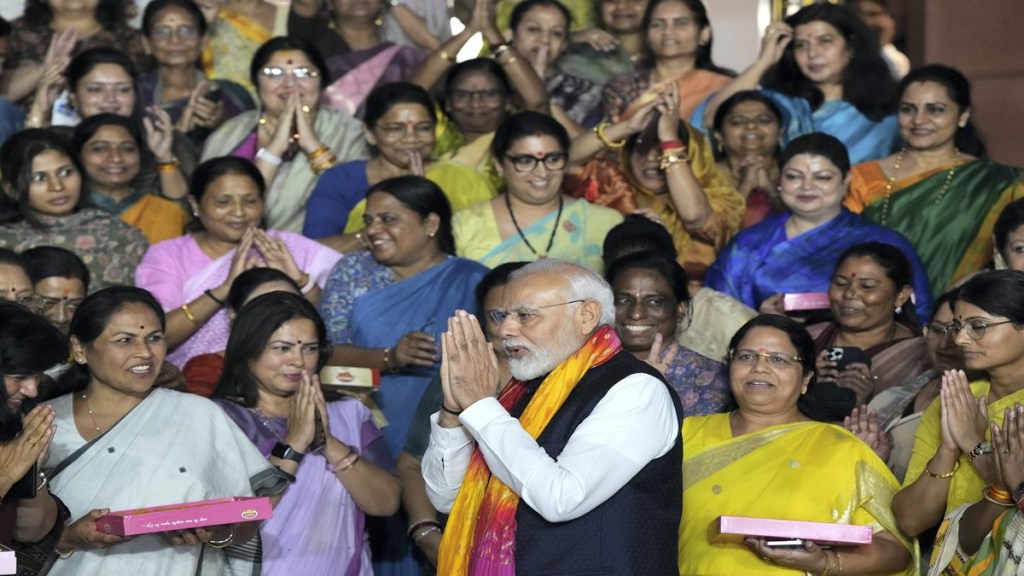Women Reservation Bill: The landmark Women’s Reservation Bill, which seeks to provide 33 per cent reservation to women in the Lok Sabha and state Assemblies, has now become an Act after receiving the assent of President Droupadi Murmu.
The Bill was introduced in the Lok Sabha on September 19 by Union Law Minister Arjun Ram Meghwal. A day later, it was passed in the Lower house after an eight-hour debate, with just two of the over 450 members voting against it. The Rajya Sabha passed the Bill “unanimously” on September 21.
Following Murmu’s assent, Meghwal tweeted on Friday, “With the approval of the historic ‘Nari Shakti Vandan Act-2023’ by President Droupadi Murmu, this Bill has become an important law of India.”
According to a notification issued by the Law Ministry on Friday, the President had given her assent on Thursday. The Vice President and Rajya Sabha Chairman Jagdeep Dhankhar signed the Bill on Thursday, after which it was placed before the President for her assent.
Now, it will be officially known as the Constitution (106th Amendment) Act. According to the gazette notification, dated September 28, “It shall come into force on such date as the central government may, by notification in the Official Gazette, appoint.”
During a special session of Parliament earlier this month, Prime Minister Narendra Modi had described the law as “Nari Shakti Vandan Adhiniyam”, and became the first Bill to be passed in both Houses of the Parliament in the new Parliament building.
The law will take some time before being implemented as the next census and the subsequent delimitation exercise – redrawing of Lok Sabha and assembly constituencies – will ascertain the particular seats being earmarked for women.
The quota for women in the Lok Sabha and assemblies will continue for 15 years and Parliament can later extend the benefit period.
While there is quota within quota for Scheduled Caste (SC) and Scheduled Tribe (ST) women, the opposition had demanded that the benefit be extended to Other Backward Classes.
There have been several efforts to pass the bill in Parliament since 1996. The Women’s Reservation Bill was passed in the Upper House in 2010 when the Congress-led UPA was in power. It was later taken up in Lok Sabha and had subsequently lapsed in the Lower House.

